Imperatives of regulatory diplomacy
Regulations are the new focus of economic statecraft. Their increasing importance is reflected in the negotiations on global financial standards, plurilateral trading rules, and regional economic unions.
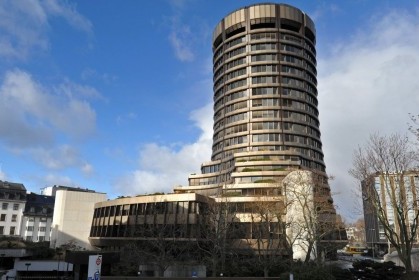 Courtesy: Quartz
Courtesy: Quartz
Regulations are the new focus of economic statecraft. Their increasing importance is reflected in the negotiations on global financial standards, plurilateral trading rules, and regional economic unions.
The story of U.S.-India relations is one of unfulfilled potential. Despite their common commitment to democracy, diversity, and free markets, the short- and long-term objectives have not aligned in a way that has enabled the creation of a robust economic and political partnership. These two nations, which will soon be the second and third largest economies in the world, must find ways to increase their economic integration over the next 10 years
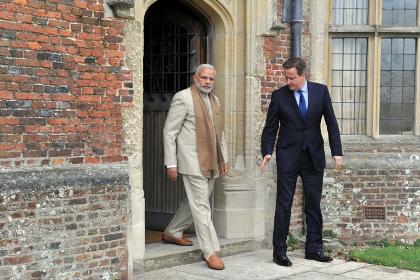 Courtesy: MEA / Flickr
Courtesy: MEA / Flickr
The result of the Brexit referendum is nothing less than a body blow to Bretton Woods organisations, International Monetary Fund-North Atlantic Treaty Organisation (NATO)-World Bank, that originated at the end of the Second World War. The possibility of an Asian century becomes more feasible, if India can be nimble enough to make the most of the opportunity which has presented itself in Europe.
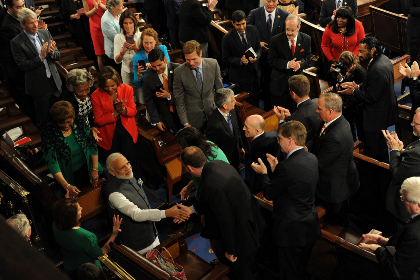 Courtesy: MEA / Flickr
Courtesy: MEA / Flickr
Prime Minister Narendra Modi's fourth visit to the United States has been met with hails of success and with comments of 'too little, too late'. While Modi's friendship with President Obama is often credited for improving bilateral relations, the U.S. leader is currently nearing the end of his term. The new President will have their own geopolitical demands, which will invariably result in India being relegated to a second-term priority.
 Courtesy: Manjeet Kripalani
Courtesy: Manjeet Kripalani
The crippling effect of American sanctions are thorough; designed to strangle economies and bring entire nations to a halt. However, they unknowingly pull people together, imparting a deep sense of patriotism and often sparking innovation which can quickly surpass any other world power. With sanctions being lifted on nations like Myanmar, Iran and, hopefully, Cuba, the question remains whether they will retain their uniqueness or fall into line with the rest?
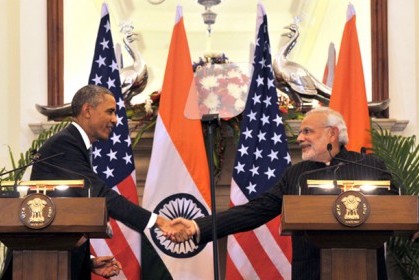 Courtesy: Wikipedia
Courtesy: Wikipedia
Prime Minister Modi’s skills will be tested on his upcoming visit to the United States. The challenge comes in light of recent anti-India sentiments voiced at a U.S. Senate Foreign Relations Committee hearing. With Modi set to address a joint session of the U.S. Congress, this is an opportunity to address all concerns, be it on policy or polity.
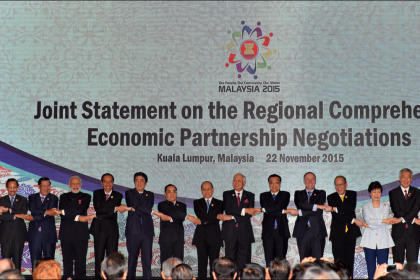 Courtesy: MEA / Flickr
Courtesy: MEA / Flickr
Five rather unfavourable trends define India’s trade performance over the past two years; these trends also provide useful pointers as to where India’s future trade strategy can go over the next three years as it deals with a global economic slowdown, the rise of megatrade agreements and a pivot to a more intensive trade relation with the U.S.
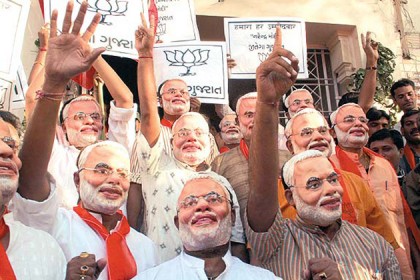 Courtesy: Narendramodi.in
Courtesy: Narendramodi.in
Narendra Modi’s landslide victory in India's 2014 general elections, despite his hardline nationalist image, was viewed as a localised phenomenon. But two years later, voters across the world from Europe to Philippines seem to be tilting towards leaders with the same nationalist tag.
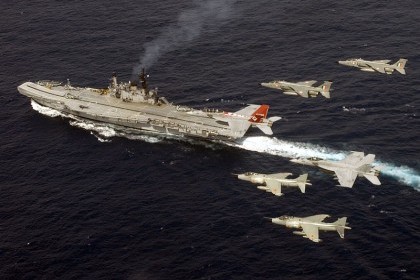 Courtesy: Wikipedia
Courtesy: Wikipedia
After nearly a decade of moving slowly towards the U.S. on critical matters including nuclear power, the recent bilateral agreement to share military facilities and have anti-submarine warfare talks, suggest that Prime Minister Narendra Modi will have India sail the oceans with the American eagle.
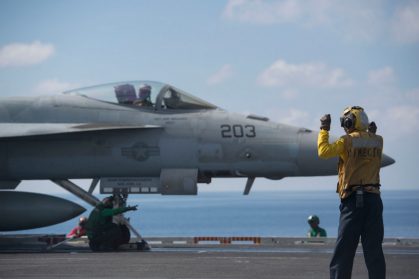 Courtesy: Ash Carter / Flickr
Courtesy: Ash Carter / Flickr
The success of the U.S. Defense Secretary's recent visit to India is indicative of the deepening India-U.S. defence relationship. It has become clear that Indo-U.S. maritime cooperation in the Indian Ocean is steaming ahead; while other geopolitical differences, like the sale of aircraft to Pakistan, seem unlikely to disappear anytime soon.